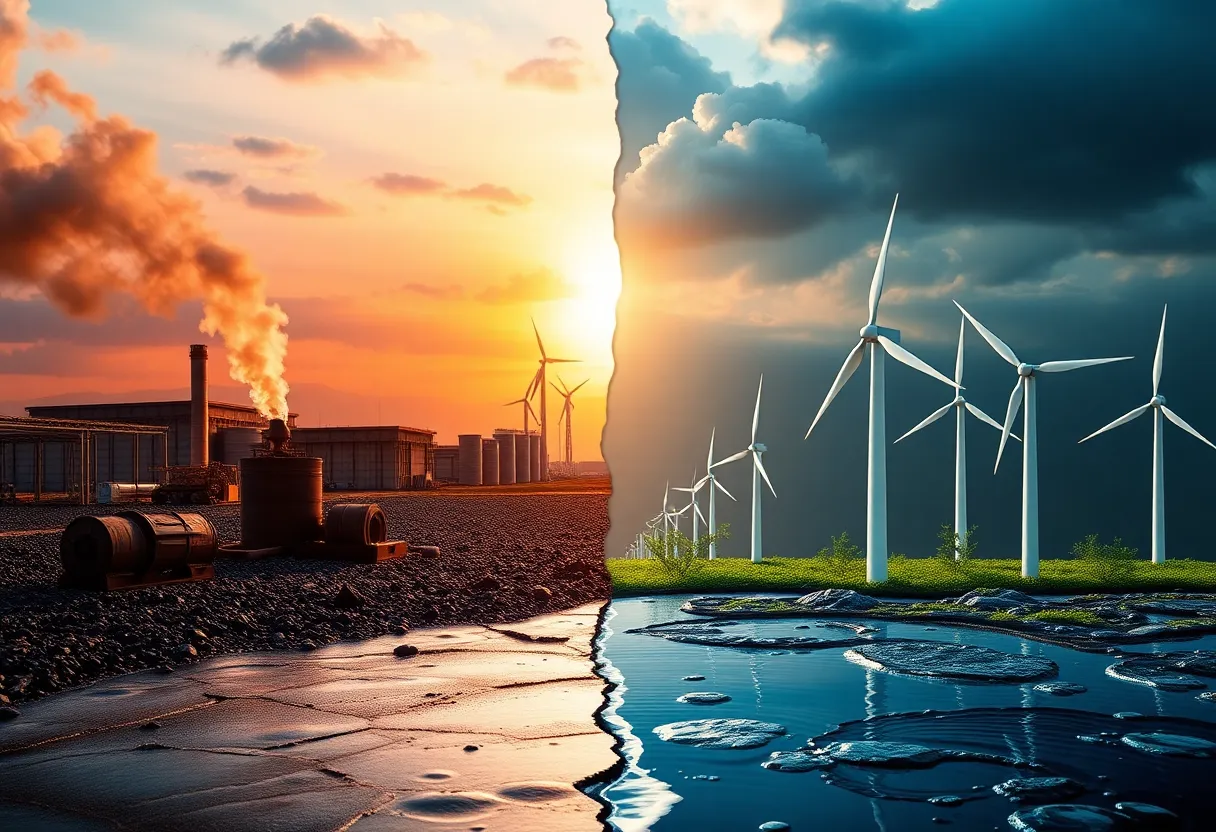News Summary
New York is embroiled in a political battle concerning energy policies, with the Energy Choice Act and the HEAT Act at the forefront. The proposed legislation aims to shape the future of energy access and sustainability in the state, drawing sharp divides between legislators. Concerns about energy affordability, climate goals, and the implications of new regulations are central to the discourse as lawmakers consider the impact of recent heating crises on vulnerable populations.
New York is currently facing significant political tensions surrounding its energy policies, which have sparked controversy and debate among legislators. The ongoing struggles reflect a broader clash over climate action and energy independence within the state.
On one side of the debate, Republican U.S. Representative Nick Langworthy has introduced the bipartisan Energy Choice Act in both the U.S. House and Senate. This proposed legislation aims to prevent state and local governments from banning utility service hookups such as connection, reconnection, modification, or expansion. Langworthy has been vocal in criticizing New York’s Climate Leadership and Community Protection Act (CLCPA), which seeks to transition the state away from fossil fuels towards total electrification.
The push for electrification involves mandating the use of electric heat pumps and establishing specific deadlines for moving away from fossil fuels. A recent audit by the New York State Comptroller’s Office raised concerns about the financial implications and practical implementation of the CLCPA, suggesting that the transition could incur substantial costs for the state.
In addition, the New York HEAT (Home Energy Affordable Transition) Act has resurfaced in the legislative discussions, reintroduced by Democratic State Senator Liz Krueger. This act is designed to support low- and moderate-income households by capping their energy costs at 6% of household income. Advocates of the HEAT Act, such as the grassroots organization PUSH Buffalo, argue for its urgent passage through the State Assembly, emphasizing the importance of accessible energy.
However, critics of the HEAT Act voice their concerns over its potential ramifications on the natural gas utility sector. They argue that capping energy costs could shrink the customer base for these utilities, jeopardizing their viability. Additionally, building industry stakeholders have expressed apprehensions that the HEAT Act could significantly increase the costs of new home construction by approximately $20,000, complicating the housing market in New York.
The context of this heated debate is rooted in the recent devastating Christmas Weekend Blizzard in December 2022, which led to 47 reported deaths, many involving vulnerable elderly individuals reliant on heated spaces. This disaster brought to light the vital importance of reliable heating and energy access for New Yorkers. As a result, energy policies and their impacts on public safety and affordability have captured the attention of lawmakers and the public alike.
The Energy Choice Act, meanwhile, has drawn sharp criticism from State Senator Krueger. She has argued that this legislation would lead to confusion in energy regulations and encroach upon the state’s right to self-governance regarding energy matters. Proponents of the Act, however, regard it as a necessary measure to uphold energy independence and manage energy resources effectively.
Ultimately, the proposed Energy Choice Act and the HEAT Act represent two diverging paths in New York’s energy policy discourse, encapsulating the tensions between the objectives of affordability, sustainability, and energy autonomy. The potential outcomes of these legislative efforts could drastically affect the state’s energy landscape, influencing everything from household costs and construction practices to broader environmental goals.
As these debates progress, New York policymakers must grapple with the competing interests of energy affordability for consumers, sustainable practice in compliance with climate regulations, and the economic implications for those involved in the energy and housing sectors. The outcomes of these discussions will undoubtedly shape the future direction of energy policy in New York.
Deeper Dive: News & Info About This Topic
- WGRZ: Energy Choice Bill in Congress vs NYS Climate Measures
- Wikipedia: Energy Policy of New York
- Buffalo News: Opinion on NY Energy Policies
- Google Search: New York energy policy
- Buffalo Rising: Positive Signs for Earth Day 2025
- Google Scholar: New York energy efficiency
- Arkansas Advocate: Bill to Protect Buffalo River Watershed
- Encyclopedia Britannica: Energy Policy
- Spectrum Local News: Higher Utility Costs Analysis
- Google News: New York climate policy

Author: STAFF HERE NEW YORK WRITER
The NEW YORK STAFF WRITER represents the experienced team at HERENewYork.com, your go-to source for actionable local news and information in New York, the five boroughs, and beyond. Specializing in "news you can use," we cover essential topics like product reviews for personal and business needs, local business directories, politics, real estate trends, neighborhood insights, and state news affecting the area—with deep expertise drawn from years of dedicated reporting and strong community input, including local press releases and business updates. We deliver top reporting on high-value events such as New York Fashion Week, Macy's Thanksgiving Day Parade, and Tribeca Film Festival. Our coverage extends to key organizations like the Greater New York Chamber of Commerce and United Way of New York, plus leading businesses in finance and media that power the local economy such as JPMorgan Chase, Goldman Sachs, and Bloomberg. As part of the broader HERE network, including HEREBuffalo.com, we provide comprehensive, credible insights into New York's dynamic landscape.





